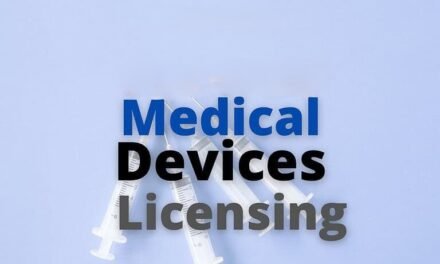
MDR Amendment to enable state news for Government to establish Medical Devices testing Laboratories notifies by Health Ministry

The Ministry of Health and Family Welfare (MoHFW), under the leadership of Union Health Minister Mansukh Mandaviya, has introduced an amendment to the Medical Device Rules (MDR) to enable the establishment of Medical Device Testing Laboratories (MDTLs) across India. This amendment is seen as a crucial step in strengthening the regulatory framework for medical devices, ensuring their safety, quality, and efficacy, and fostering the growth of the medical device industry in India.
Key Aspects of the MDR Amendment for Establishing MDTLs:
- Establishment of Medical Device Testing Laboratories (MDTLs):
The MDR amendment provides a regulatory framework that allows both the central and state governments to establish Medical Device Testing Laboratories in different regions of India. These laboratories will play a vital role in:- Testing the safety, quality, and performance of medical devices before they reach the market.
- Certifying the compliance of medical devices with Indian standards and international regulations.
- Ensuring regulatory conformity for both domestic manufacturers and foreign imports.
- Objectives of the Amendment:
The amendment has been introduced to achieve several key objectives:- Boosting Domestic Manufacturing: By having access to accredited testing laboratories within India, domestic manufacturers can test their products locally, reducing costs and the time required for compliance with regulatory standards.
- Reducing Dependency on Foreign Testing: Indian manufacturers have often been reliant on foreign testing labs to comply with quality standards. This amendment allows for testing to be done within the country, making the regulatory process more efficient and cost-effective.
- Improving Medical Device Quality: The amendment aims to improve the overall quality control of medical devices being manufactured and sold in India, ensuring that patients are protected from substandard and unsafe devices.
- Ensuring Compliance with International Standards: Medical devices made in India or imported into India must meet international standards, and the availability of domestic testing labs will make it easier for manufacturers to comply with these global norms.
- Encouraging Innovation and R&D: The availability of medical device testing labs will also facilitate research and development in India, supporting new innovations in medical technology.
- Role of State Governments:
The amendment empowers state governments to set up and manage medical device testing laboratories in their respective regions. This will decentralize the testing process and improve the accessibility of these labs, particularly for small and medium-sized enterprises (SMEs) in the medical device sector.- State-Level Initiatives: States can develop their own testing infrastructure, which will align with national standards while catering to regional manufacturing needs.
- Fostering Local Industry: By establishing such labs in different states, the government aims to support local industries and reduce logistical barriers for testing and certification, particularly in areas with high concentrations of medical device manufacturers.
- Accreditation and Certification:
The testing laboratories established under the new amendment will need to be accredited by the National Accreditation Board for Testing and Calibration Laboratories (NABL). This ensures that the laboratories adhere to globally accepted standards of testing and certification.- The accreditation process will be aligned with the Indian Pharmacopoeia Commission (IPC) standards, ensuring that all devices tested meet the highest quality and safety requirements.
- Infrastructure Support and Funding:
The government is expected to provide financial support to state governments and private entities interested in setting up medical device testing labs. This may include funding for infrastructure, equipment, and training personnel.- The creation of Medical Device Testing Parks as part of state-level initiatives may also be explored, similar to the medical device parks being developed for manufacturing purposes.
- Regulatory Oversight:
The Central Drugs Standard Control Organization (CDSCO), the national regulatory authority for drugs and medical devices in India, will continue to play a crucial role in overseeing the compliance of these laboratories with national regulatory requirements. The CDSCO will also ensure that the testing processes and results are aligned with the Medical Device Rules (2017) and other relevant standards.- The State Drugs Control Departments will be responsible for the enforcement of these rules at the local level, ensuring that all devices undergo necessary testing before they are introduced to the market.
- Benefits of Medical Device Testing Laboratories:
- Speed and Efficiency: With more testing labs available, manufacturers will be able to obtain certification more quickly, reducing delays in product launches.
- Affordability: Testing within India will significantly reduce the costs for manufacturers, especially small and medium-sized enterprises (SMEs), who may not have the financial resources to test their products abroad.
- Access to Quality Testing: The availability of testing labs will improve the accessibility to high-quality testing services for manufacturers, ensuring better product quality control.
- Export Readiness: With Indian medical devices meeting international standards and certifications, manufacturers will be better positioned to enter global markets.
- Strengthening India’s Role in the Global Medical Device Market:
The establishment of MDTLs is part of India’s broader strategy to become a global leader in medical device manufacturing. The country has already seen significant growth in the medical device sector, and this move will further enhance its position as a hub for medical device innovation, manufacturing, and exports.




























